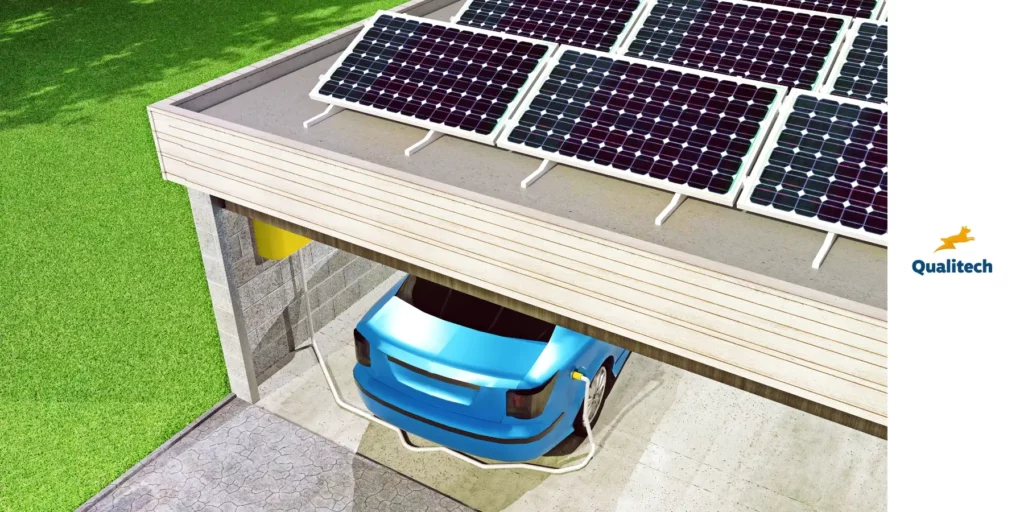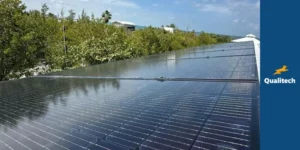
In today’s fast-paced world, where environmental sustainability is a growing concern, electric cars have emerged as a viable alternative to traditional gas-guzzlers. As eco-conscious consumers make the switch to electric vehicles (EVs), they often wonder, “How many solar panels do I need to charge my electric car?” This question is not just about saving money on electricity bills but also reducing your carbon footprint. In this comprehensive guide, we’ll delve into the intricacies of harnessing solar energy to power your EV efficiently.
Assessing Your Electric Car’s Charging Needs
Before we embark on calculating the number of solar panels required, it’s crucial to understand your electric car’s charging requirements. Different EV models have varying battery capacities and charging capabilities. To determine your vehicle’s specific needs, follow these steps:
Step 1: Identify Your EV’s Battery Capacity
The first step is to identify your electric car’s battery capacity. This information can typically be found in your car’s manual or on the manufacturer’s website. Battery capacity is measured in kilowatt-hours (kWh) and is a critical factor in determining how much energy your car requires for a full charge.
Step 2: Calculate Your Daily Driving Habits
To accurately estimate your daily charging needs, consider your driving habits. Calculate the average distance you drive each day and the number of miles your EV covers per kWh. This will help you determine the daily energy consumption of your electric car.
Step 3: Determine the Frequency of Charging
Next, consider how often you need to charge your electric car. Some drivers charge their EVs daily, while others may do so every few days. Your charging frequency will impact the number of solar panels required to meet your needs efficiently.
Solar Panels and Energy Production
Now that we have a clear understanding of your electric car’s charging requirements, let’s delve into the world of solar panels and energy production. Solar panels generate electricity by harnessing sunlight through photovoltaic cells. The efficiency of your solar panel system depends on various factors, including:
Panel Efficiency
Solar panels come in various efficiency ratings. Higher efficiency panels convert more sunlight into electricity, making them a better choice for optimizing your EV charging setup.
Sunlight Exposure
The geographical location of your home plays a significant role in solar panel efficiency. Regions with more sunlight throughout the year will generate more electricity, reducing the number of panels needed.
System Orientation and Tilt
The angle and direction at which your solar panels are installed can impact their energy production. Consult with a professional to ensure your panels are optimally positioned.
Calculating the Number of Solar Panels
To determine the number of solar panels required to charge your electric car, you’ll need to perform some calculations. We’ll provide a simplified formula here, but it’s advisable to consult with a solar installation expert for precise results:
Number of Panels = (Daily Energy Consumption) / (Panel Efficiency x Sunlight Exposure)
Substitute the values specific to your situation into this formula to arrive at the number of solar panels needed.
Maximizing Efficiency with Battery Storage
While solar panels are an excellent solution for charging your electric car, you can further optimize your setup by incorporating battery storage. Solar batteries store excess energy generated during the day, allowing you to charge your EV even during cloudy or nighttime conditions. This enhances your charging flexibility and reduces your reliance on the grid.
Conclusion
In conclusion, the transition to electric vehicles is a significant step toward a sustainable future. To ensure your electric car is efficiently powered by solar energy, follow these steps:
- Assess your electric car’s battery capacity and daily energy consumption.
- Calculate the number of solar panels needed based on panel efficiency and sunlight exposure.
- Consider adding a solar battery to maximize efficiency and charging flexibility.
By taking these steps, you’ll not only reduce your carbon footprint but also enjoy the cost-saving benefits of solar-powered EV charging. Remember, every effort to harness clean energy brings us one step closer to a greener, more sustainable world. Drive on sunshine and make a positive impact on our planet.
Contact us today to embark on your renewable energy journey and take a substantial step toward a brighter, cleaner world!
Go Solar with Qualitech! Contact us today!






